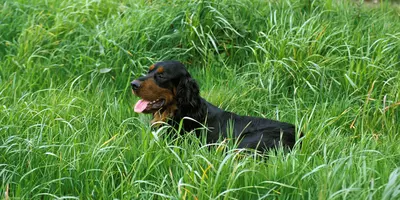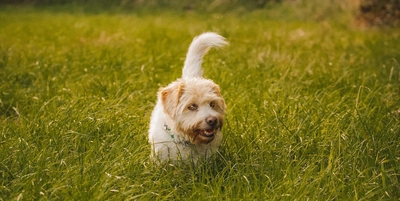Are Acorns Poisonous to Dogs?
- 31 Aug 2023
- 4m read

Yes, acorns can be poisonous to dogs.
How Much Acorn is Toxic to Dogs?
Acorns can indeed be toxic to dogs, but the severity of the toxicity depends on several factors, including the size of the dog, the quantity ingested, and the dog's overall health.
The primary concern with acorns is that they contain tannins and other compounds that can be harmful to dogs when consumed in large quantities. These substances can cause gastrointestinal upset, including vomiting and diarrhoea. In severe cases, they may lead to more serious issues like kidney and liver damage.
So, the key here is moderation. A dog occasionally nibbling on an acorn may not pose a significant risk. However, if your dog consumes a large number of acorns or shows signs of distress after ingesting them, it's crucial to seek immediate veterinary attention.
Why Do Dogs Eat Acorns?
You may have noticed your dog showing a keen interest in acorns during your walks or in your garden. But why do dogs munch on these seemingly harmless little nuts? Well, there are a few reasons.
First, dogs are naturally curious creatures. They explore the world through their senses, and acorns can be quite appealing with their earthy scent and interesting textures.
Additionally, some dogs have a habit of chewing on things as a form of play or stress relief. Acorns, unfortunately, can become a target for such chewing sessions.
Another possibility is that dogs might be drawn to acorns due to their innate foraging instincts. Acorns are often scattered on the ground, and dogs have a long history of scavenging and foraging for food. This ancestral behaviour could be what drives them to munch on acorns.
What Should I Do If My Dog Eats Acorns?
If you suspect that your dog has eaten acorns or you've caught them in the act, it's essential to take action promptly. Here's a quick checklist of what to do:
Observe your dog
Keep a close eye on your pup. Look out for any unusual behaviour, such as vomiting, diarrhoea, lethargy, or loss of appetite.
Contact your vet
Reach out to your veterinarian for guidance. Describe the situation and follow their advice. They may ask you to bring your dog in for an examination or provide specific instructions based on your dog's size and health.
Avoid inducing vomiting
Unlike some other toxins, inducing vomiting at home for acorn ingestion may not be recommended. Always consult your vet first.
Provide supportive care
Your veterinarian may recommend treatments to alleviate symptoms and protect your dog's organs from potential damage.
Can Acorns Cause Seizures in Dogs?
Yes, in some cases, the toxins in acorns can lead to seizures. This risk is particularly concerning if a dog ingests a large quantity of acorns or if they are a smaller breed.
Seizures can be a terrifying experience for both dogs and their owners. They can range in severity, from mild twitching to full-blown convulsions. If you suspect your dog is experiencing a seizure, it's vital to keep them safe during the episode by removing any potential hazards and gently comforting them.
As with any concerning symptoms, including seizures, it's crucial to contact your vet immediately. They can assess the situation and provide the appropriate guidance and treatment for your dog's specific needs.
How Do I Keep My Dog From Eating Acorns?
Prevention is always the best approach when it comes to our dog's safety. If you want to keep your pup from indulging in acorns, here are some tips:
Supervise outdoor time
Whenever your dog is in an area where acorns are present, keep a close watch on them. This way, you can intervene if they start snacking on these nuts.
Training and distraction
Proper training can be highly effective. Teach your dog commands like "leave it" and "drop it." These commands can help redirect their attention when they show interest in acorns.
Garden cleanup
Regularly clean up your garden and remove any fallen acorns. This simple action can reduce the temptation for your dog to explore these snacks.
Use a muzzle
In cases where your dog's fascination with acorns is persistent and potentially dangerous, consider using a muzzle during outdoor activities.




